Sample Papers
03/15/2017 08:20 PM
Here are some especially strong papers from the first paper assignment. I am happy to share them with permission from the authors.
Elyssa’s “Geographic Love-Shifts”;
Alex’s “The Context of Romantic and Intimate Communication”;
Sean’s “The Language of Intimacy and Social Development”;
A paper on “Queer Erasure” by an author who would rather not share their name;
Kyle’s “Privacy is Relative to the Individual”;
Andrew’s “Rural China: A Case of Positive Cultural Change.”
Elyssa’s “Geographic Love-Shifts”;
Alex’s “The Context of Romantic and Intimate Communication”;
Sean’s “The Language of Intimacy and Social Development”;
A paper on “Queer Erasure” by an author who would rather not share their name;
Kyle’s “Privacy is Relative to the Individual”;
Andrew’s “Rural China: A Case of Positive Cultural Change.”
EC - Teach in
02/01/2017 01:34 PM
I’m happy to give extra credit to any student who attends this event and writes a reflection.
The deputy director of the Michigan ACLU, Rana Elmir, will be speaking at a teach-in on the Executive Order on immigration and refugees, with specific reference to its potential impact on U-M students, this Thursday from 7-9PM in 3512 Haven Hall.
The teach-in is hosted by the U-M Muslim Graduate Student Association with the support of the Arab and Muslim American Studies (AMAS) Program in American Culture. Event flyer attached. All are invited, and there will also be a livestream here: https://www.youtube.com/watch?v=FIisClK0MSE.
The deputy director of the Michigan ACLU, Rana Elmir, will be speaking at a teach-in on the Executive Order on immigration and refugees, with specific reference to its potential impact on U-M students, this Thursday from 7-9PM in 3512 Haven Hall.
The teach-in is hosted by the U-M Muslim Graduate Student Association with the support of the Arab and Muslim American Studies (AMAS) Program in American Culture. Event flyer attached. All are invited, and there will also be a livestream here: https://www.youtube.com/watch?v=FIisClK0MSE.
EC - Asia is the Gayest!
02/01/2017 01:18 PM
I’m happy to give extra credit to any student who attends this event and writes a reflection.
Audrey Yue from the University of Melbourne, Australia
LECTURE
All are welcome
Thursday, February 2, 2017
4:00pm-5:30pm
North Quad 2435
"OF ALL THE CONTINENTS IN THE WORLD,
ASIA IS THE GAYEST!"
ON TRANS-SINGAPORE AND QUEER ASIA AS METHOD
This lecture will reflect on two developments in critical theory that have brought new methods in the humanities: the turn to Asia as a source of debate in theory and the transitional turn in queer studies.
Audrey Yue from the University of Melbourne, Australia
LECTURE
All are welcome
Thursday, February 2, 2017
4:00pm-5:30pm
North Quad 2435
"OF ALL THE CONTINENTS IN THE WORLD,
ASIA IS THE GAYEST!"
ON TRANS-SINGAPORE AND QUEER ASIA AS METHOD
This lecture will reflect on two developments in critical theory that have brought new methods in the humanities: the turn to Asia as a source of debate in theory and the transitional turn in queer studies.
EC - Why Evidence Still Matters
01/27/2017 01:55 PM
I’m happy to give extra credit to students who attend this talk and write a reflection about it.
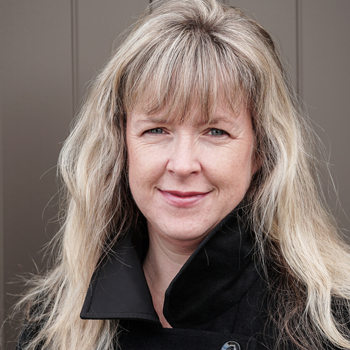
| Politicized Science: Why Evidence Still Matters |
| Feminist Science Studies |

Sexpertise Conference
01/24/2017 09:20 AM
For those who might be interested...
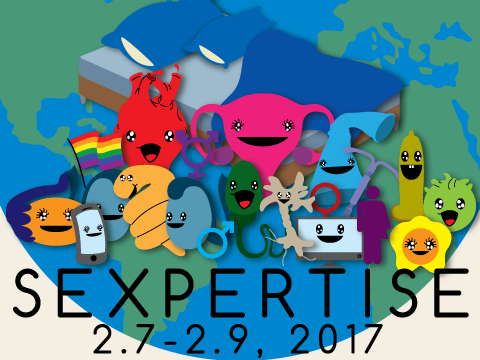
How can I communicate about what I want and don't want?
What can I do to improve my sexual health and wellness?
How do identities, the media, and culture shape our sexuality?
Find the answers to these and other questions at Sexpertise 2017!
Sexpertise is a three-day conference from February 7th to 9th, 2017. It engages students, faculty, and community practitioners in discussion and learning about sexuality and relationships. Through a diverse group of sessions, we'll explore topics of interest to the U-M student community including pleasure, culture, wellness, relationships, and more! All events are free and open to the public. Registration is encouraged but not required, and you are invited to attend one, a few, or all sessions!
Website with the schedule is here.

How can I communicate about what I want and don't want?
What can I do to improve my sexual health and wellness?
How do identities, the media, and culture shape our sexuality?
Find the answers to these and other questions at Sexpertise 2017!
Sexpertise is a three-day conference from February 7th to 9th, 2017. It engages students, faculty, and community practitioners in discussion and learning about sexuality and relationships. Through a diverse group of sessions, we'll explore topics of interest to the U-M student community including pleasure, culture, wellness, relationships, and more! All events are free and open to the public. Registration is encouraged but not required, and you are invited to attend one, a few, or all sessions!
Website with the schedule is here.
EC - Break the Chain
01/23/2017 08:45 PM
I’m happy to give extra credit to students who attend this event and write a reflection.
The CASCAID faculty group invites you to join us for Dinner and a Movie as part of our series focusing on trauma and youth who have had adverse childhood experiences on Wednesday, February 8th at 5:30pm in the U-M School of Nursing building (426 N. Ingalls Street). We will be showing “Break the Chain,” a feature-length documentary that addresses the issue of Human Trafficking within Michigan communities and the U.S. The documentary follows two survivors of human trafficking, as they provide a realistic look at how often this issue can go unnoticed.
There will be a panel discussion with graduate students and professionals in nursing, law, anthropology, and social work.
Please join us for dinner- catered by Jerusalem Garden- followed by the showing of “Break the Chain.” Click the link below to RSVP by January 27, 2017.
Click Here to RSVP
Bring your own cups/water canisters, as they will not be provided.
The CASCAID faculty group invites you to join us for Dinner and a Movie as part of our series focusing on trauma and youth who have had adverse childhood experiences on Wednesday, February 8th at 5:30pm in the U-M School of Nursing building (426 N. Ingalls Street). We will be showing “Break the Chain,” a feature-length documentary that addresses the issue of Human Trafficking within Michigan communities and the U.S. The documentary follows two survivors of human trafficking, as they provide a realistic look at how often this issue can go unnoticed.
There will be a panel discussion with graduate students and professionals in nursing, law, anthropology, and social work.
Please join us for dinner- catered by Jerusalem Garden- followed by the showing of “Break the Chain.” Click the link below to RSVP by January 27, 2017.
Click Here to RSVP
Bring your own cups/water canisters, as they will not be provided.
Break the Chain Official Trailer from Kirk David Mason on Vimeo.
EC - Finding Women in the State
01/23/2017 06:21 AM
I’m happy to give extra credit to anyone who attends this event and writes a reflection about it.
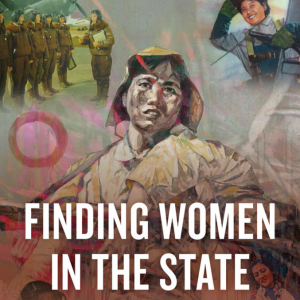
Finding Women in the State: A Socialist Feminist Revolution in the People's Republic of China, 1949-1964
Monday, February 13
3:00 PM
2239 Lane Hall
Discussants:
• Wang Zheng, Professor of Women's Studies and History; Research Scientist, Institute for Research on Women and Gender
• Mary E. Gallagher, Professor, Department of Political Science; Director, Lieberthal-Rogel Center for Chinese Studies
• Kathleen Canning, Sonya O. Rose Collegiate Professor, Arthur F. Thurnau Professor, Department of History
Finding Women in the State is a provocative hidden history of socialist state feminists maneuvering behind the scenes at the core of the Chinese Communist Party (CCP). More details.

Monday, February 13
3:00 PM
2239 Lane Hall
Discussants:
• Wang Zheng, Professor of Women's Studies and History; Research Scientist, Institute for Research on Women and Gender
• Mary E. Gallagher, Professor, Department of Political Science; Director, Lieberthal-Rogel Center for Chinese Studies
• Kathleen Canning, Sonya O. Rose Collegiate Professor, Arthur F. Thurnau Professor, Department of History
Finding Women in the State is a provocative hidden history of socialist state feminists maneuvering behind the scenes at the core of the Chinese Communist Party (CCP). More details.
Performance by our own Marina Kondo
01/23/2017 06:04 AM
Please attend and / or ask Marina any questions about it. She explains it -
The show will be on January 25th (next wednesday) from 7:30PM at the Video Studio in the Dude. Library.
It is free admission, and the show will run for about a little over an hour!
The first part of the show will be a standard show, but during the second part I will be talking about my hybrid Identity as a first generation Japanese American, and how that has molded my personal cultural identity as well as how that effects the way I listen to and experience music.
I will be performing pieces of Japanese Folk music that have been re-harmonized into more of a western/Jazz feel, and taking Jazz music and writing Japanese Lyrics to them.

The show will be on January 25th (next wednesday) from 7:30PM at the Video Studio in the Dude. Library.
It is free admission, and the show will run for about a little over an hour!
The first part of the show will be a standard show, but during the second part I will be talking about my hybrid Identity as a first generation Japanese American, and how that has molded my personal cultural identity as well as how that effects the way I listen to and experience music.
I will be performing pieces of Japanese Folk music that have been re-harmonized into more of a western/Jazz feel, and taking Jazz music and writing Japanese Lyrics to them.

EC - Happy Hour
01/17/2017 08:11 PM
This movie is loooong, but is supposed to be good. I’m happy to give extra credit to any student who watches it and writes a reflection.
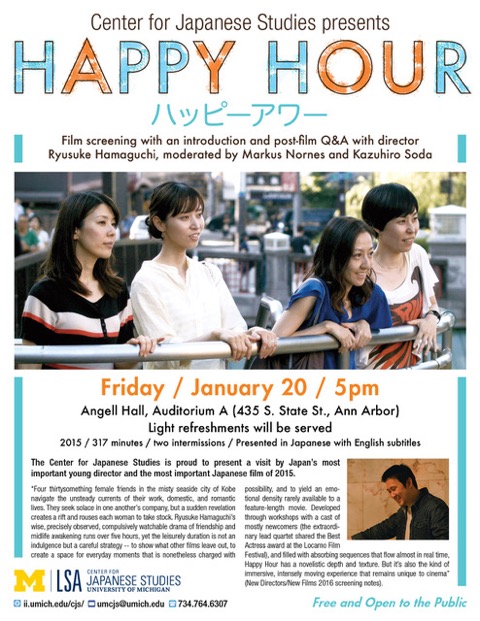

How to Find Facts
01/17/2017 08:00 PM
Steve Inskeep wrote A Finder's Guide To Facts.
Here is his central list -
So here's a finder's guide for facts:
First, take a moment. If you have time to scroll Facebook or watch the news, you probably have a moment to decide if a news story seems credible. Ask some quick questions:
Is the story so outrageous you can't believe it? Maybe you shouldn't. Respect the voice inside you that says, "What?"
Is the story so outrageous you do believe it? That's also a warning sign. Many stories play on your existing beliefs. If the story perfectly confirms your worst suspicions, look for more information.
Does the headline match the article? Many compelling headlines don't.
Does the article match the news story it's lifted from? Many sites rewrite other news articles to fit the political slant of their presumed audience. Look for links to original sources and click through and see what the original says.
Are quotes in context? Look for the sentences before and after the quote that makes your blood boil. If the article fails to give them, that's a warning sign.
Is the story set in the future? It's hard to get firsthand reporting from there. Any story that tells you what will happen should be marked down 50 percent for this reason alone.
Does the story attack a generic enemy? Vague denunciations of "Washington" or "the media" or "Trump supporters" or "the left" should be marked down 99 percent. Good reporting doesn't make these kinds of generalizations and is specific about who is making a claim about what.
Are you asked to rely on one killer factoid? Not a good idea. If a hacked document "proves" an implausible conspiracy, look for the context that shows what the document really means. As for photos and video, use Ronald Reagan's old slogan: trust but verify. If there's any doubt about a "stunning" video, see if more traditional sources link to it. They love video clicks as much as anyone. If they refrain, there may be good reason.
Who is the news source, anyway? Traditional news brands may occasionally get it wrong — sometimes hugely wrong — but at least you know where to find them and hold them accountable. Less prominent news sites might carry compelling stories — but expect them to show you who they are and where they gathered information.
Does the news source appear to employ editors? Many news organizations produce stories that are checked before publication. Others don't. It's a big deal. Hiring an editorial staff shows the publication's respect for you, and matters more than "political bias." The New York Times and the Wall Street Journal, for example, have different owners, audiences, stories, perspectives and obsessions. Both have made mistakes and omissions; but both send reporters out into the world and back them up with an editorial process that catches and corrects many errors. This means both can be informative, regardless of your politics or theirs.
Are you told, "Trust me"? Don't. It's the post-trust era! Expect everyone to show where their facts come from, link to underlying articles, and demonstrate that they've argued honestly. Here's a way they may bolster their credibility:
Did the writer engage with anyone who disagrees? Did they call a senator whose legislation bugs them? Did they try to grasp what the president-elect was doing, or merely repeat one of his more outrageous statements? If it's a broadcast interview, was the guest presented with genuine opposing views and challenged to answer? Those who wrestle with opposing arguments do you a service and often improve their own arguments.
These simple questions should take you a long way toward judging the value of a news story. While applying such questions to any given story, you can also take a few more general steps:
Broaden your palate. Make a point to check sites that do not agree with your politics. You may discover stories that are wrong — but you'll know what other people are consuming, which will sharpen your own thinking.
Be open to the idea that some falsehoods are sincerely held. In spite of all the warnings here, some inaccurate news stories grow out of haste or misinformation rather than pure cynicism. (But they're still false.)
If a news source consistently passes the tests in this guide, support it. Gathering reliable information isn't free. Helping to pay for it aligns the news source's interests with yours.
Here is his central list -
So here's a finder's guide for facts:
First, take a moment. If you have time to scroll Facebook or watch the news, you probably have a moment to decide if a news story seems credible. Ask some quick questions:
Is the story so outrageous you can't believe it? Maybe you shouldn't. Respect the voice inside you that says, "What?"
Is the story so outrageous you do believe it? That's also a warning sign. Many stories play on your existing beliefs. If the story perfectly confirms your worst suspicions, look for more information.
Does the headline match the article? Many compelling headlines don't.
Does the article match the news story it's lifted from? Many sites rewrite other news articles to fit the political slant of their presumed audience. Look for links to original sources and click through and see what the original says.
Are quotes in context? Look for the sentences before and after the quote that makes your blood boil. If the article fails to give them, that's a warning sign.
Is the story set in the future? It's hard to get firsthand reporting from there. Any story that tells you what will happen should be marked down 50 percent for this reason alone.
Does the story attack a generic enemy? Vague denunciations of "Washington" or "the media" or "Trump supporters" or "the left" should be marked down 99 percent. Good reporting doesn't make these kinds of generalizations and is specific about who is making a claim about what.
Are you asked to rely on one killer factoid? Not a good idea. If a hacked document "proves" an implausible conspiracy, look for the context that shows what the document really means. As for photos and video, use Ronald Reagan's old slogan: trust but verify. If there's any doubt about a "stunning" video, see if more traditional sources link to it. They love video clicks as much as anyone. If they refrain, there may be good reason.
Who is the news source, anyway? Traditional news brands may occasionally get it wrong — sometimes hugely wrong — but at least you know where to find them and hold them accountable. Less prominent news sites might carry compelling stories — but expect them to show you who they are and where they gathered information.
Does the news source appear to employ editors? Many news organizations produce stories that are checked before publication. Others don't. It's a big deal. Hiring an editorial staff shows the publication's respect for you, and matters more than "political bias." The New York Times and the Wall Street Journal, for example, have different owners, audiences, stories, perspectives and obsessions. Both have made mistakes and omissions; but both send reporters out into the world and back them up with an editorial process that catches and corrects many errors. This means both can be informative, regardless of your politics or theirs.
Are you told, "Trust me"? Don't. It's the post-trust era! Expect everyone to show where their facts come from, link to underlying articles, and demonstrate that they've argued honestly. Here's a way they may bolster their credibility:
Did the writer engage with anyone who disagrees? Did they call a senator whose legislation bugs them? Did they try to grasp what the president-elect was doing, or merely repeat one of his more outrageous statements? If it's a broadcast interview, was the guest presented with genuine opposing views and challenged to answer? Those who wrestle with opposing arguments do you a service and often improve their own arguments.
These simple questions should take you a long way toward judging the value of a news story. While applying such questions to any given story, you can also take a few more general steps:
Broaden your palate. Make a point to check sites that do not agree with your politics. You may discover stories that are wrong — but you'll know what other people are consuming, which will sharpen your own thinking.
Be open to the idea that some falsehoods are sincerely held. In spite of all the warnings here, some inaccurate news stories grow out of haste or misinformation rather than pure cynicism. (But they're still false.)
If a news source consistently passes the tests in this guide, support it. Gathering reliable information isn't free. Helping to pay for it aligns the news source's interests with yours.
Eddie Huang on Asian American Masculinity
01/14/2017 08:51 PM
In response to Steve Harvey, Eddie Huang wrote an NYT op-ed:
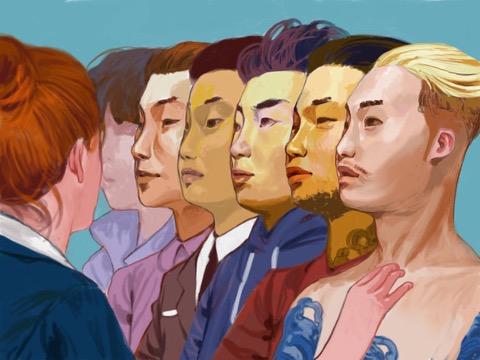
“Before ever reading about the history of discrimination against Asian-Americans — from the “yellow peril” to the Chinese Exclusion Act to the Japanese-American internment camps to the model minority myth to Vincent Chin and Pvt. Danny Chen – every Asian-American man knows what the dominant culture has to say about us. We count good, we bow well, we are technologically proficient, we’re naturally subordinate, our male anatomy is the size of a thumb drive and we could never in a thousand millenniums be a threat to steal your girl.
As a kid, you believe the things you’re told about yourself. But as I grew, I started to see things unravel. I wasn’t subordinate, I didn’t count good, I hated bowing, and outside downloading GIFs of Daisy Fuentes, I was terrible with computers. My first reaction, and the reaction of everyone at Chinese language school as well, was that I was defective and destined for life on a rack at T.J. Maxx begging to get chosen despite my imperfections. So many Asian-Americans I grew up with bought into the expectations the dominant culture placed on them and did everything they could to meet them. I recognized from a young age that I couldn’t and began to plan for life on the margins.
I realized that people on the margins aren’t afforded the privilege of being complicated, whole, human beings in America; we have to create that existence ourselves, and it is that experience that I feel fundamentally binds us. Over time, I began to find solidarity with my singularity and difference.”

“Before ever reading about the history of discrimination against Asian-Americans — from the “yellow peril” to the Chinese Exclusion Act to the Japanese-American internment camps to the model minority myth to Vincent Chin and Pvt. Danny Chen – every Asian-American man knows what the dominant culture has to say about us. We count good, we bow well, we are technologically proficient, we’re naturally subordinate, our male anatomy is the size of a thumb drive and we could never in a thousand millenniums be a threat to steal your girl.
As a kid, you believe the things you’re told about yourself. But as I grew, I started to see things unravel. I wasn’t subordinate, I didn’t count good, I hated bowing, and outside downloading GIFs of Daisy Fuentes, I was terrible with computers. My first reaction, and the reaction of everyone at Chinese language school as well, was that I was defective and destined for life on a rack at T.J. Maxx begging to get chosen despite my imperfections. So many Asian-Americans I grew up with bought into the expectations the dominant culture placed on them and did everything they could to meet them. I recognized from a young age that I couldn’t and began to plan for life on the margins.
I realized that people on the margins aren’t afforded the privilege of being complicated, whole, human beings in America; we have to create that existence ourselves, and it is that experience that I feel fundamentally binds us. Over time, I began to find solidarity with my singularity and difference.”
EC - Alt and Queer Manga
01/14/2017 06:49 PM
I’m happy to give extra credit to anyone who attends this lecture and writes a reflection.
Alt Manga, Queer Manga: Telling Our Own Stories
Erica Friedman, Independent Researcher and Founder of Yuricon
Thursday, January 19, 2017
12:00-1:30 PM
Room 1636 School of Social Work Building
"Alt Manga, Queer Manga: Telling Our Own Stories" will discuss fan perception of anime/manga, online community building and how that lead to the creation and dissemination of alt- and queer-manga as successful genres.
This talk establishes the social and political landscape and market forces that brought about a rise in manga by and for gender and sexual minorities, both in Japan and the west. Starting with the days before the Internet, as fan communities developed and digressed, through through contemporary political shifts. This talk contextualizes the complex interplay of creators' desires to tell stories, fan interpretation of those stories and industry commercialization in regards to identification with and representation of sexual and gender minorities in manga and anime.
Erica Friedman writes the world’s oldest and most comprehensive blog on Yuri, lesbian-themed Japanese cartoons, comics and related media, at Okazu.yuricon.com. Erica has spoken about anime and manga across US, in the UK and Japan. She has written for Japanese literary journal Eureka, Animerica magazine, the Comic Book Legal Defense Fund, and contributed to Forbes, Slate, Huffington Post, Hooded Utilitarian, The Mary Sue and Afterellen online.
Alt Manga, Queer Manga: Telling Our Own Stories
Erica Friedman, Independent Researcher and Founder of Yuricon
Thursday, January 19, 2017
12:00-1:30 PM
Room 1636 School of Social Work Building
"Alt Manga, Queer Manga: Telling Our Own Stories" will discuss fan perception of anime/manga, online community building and how that lead to the creation and dissemination of alt- and queer-manga as successful genres.
This talk establishes the social and political landscape and market forces that brought about a rise in manga by and for gender and sexual minorities, both in Japan and the west. Starting with the days before the Internet, as fan communities developed and digressed, through through contemporary political shifts. This talk contextualizes the complex interplay of creators' desires to tell stories, fan interpretation of those stories and industry commercialization in regards to identification with and representation of sexual and gender minorities in manga and anime.
Erica Friedman writes the world’s oldest and most comprehensive blog on Yuri, lesbian-themed Japanese cartoons, comics and related media, at Okazu.yuricon.com. Erica has spoken about anime and manga across US, in the UK and Japan. She has written for Japanese literary journal Eureka, Animerica magazine, the Comic Book Legal Defense Fund, and contributed to Forbes, Slate, Huffington Post, Hooded Utilitarian, The Mary Sue and Afterellen online.
EC - The Philippines under President Duterte 1/30
01/12/2017 01:42 PM
I’m happy to give extra credit to any student who attends this event and writes a reflection about it.
The Philippines
under
President Duterte
Monday January 30, 2017
1:30-3:00 pm
1636 School of Social Work Building
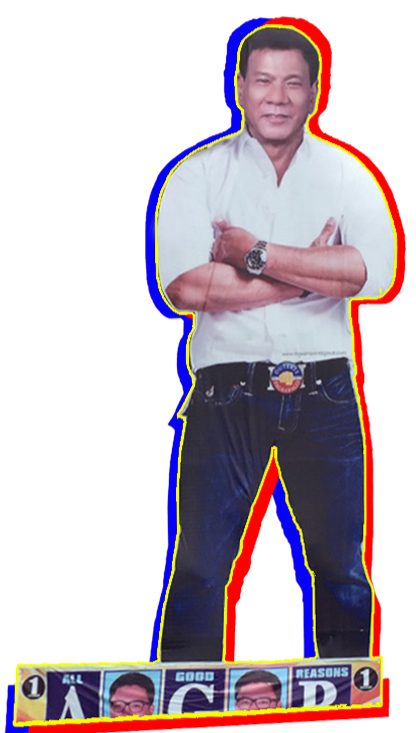
Since his election in May of 2016, President Rodrigo Duterte has charted a controversial course for his country, the Philippines. In just six months, Duterte has shaken up his country’s foreign relations, launched an attempt to amend the constitution, and overseen a campaign against drugs that has resulted in the deaths of nearly 6,000 people.
Featuring four experts from the University of Michigan, the panelists will offer their perspectives on Duterte’s tumultuous term and its implications
The Philippines
under
President Duterte
Monday January 30, 2017
1:30-3:00 pm
1636 School of Social Work Building

Since his election in May of 2016, President Rodrigo Duterte has charted a controversial course for his country, the Philippines. In just six months, Duterte has shaken up his country’s foreign relations, launched an attempt to amend the constitution, and overseen a campaign against drugs that has resulted in the deaths of nearly 6,000 people.
Featuring four experts from the University of Michigan, the panelists will offer their perspectives on Duterte’s tumultuous term and its implications
Spouses Who Don't Talk
01/12/2017 01:27 PM
Alex sends this in, apropos of our reading for Wednesday. He said “In addition to its bizarre hilarity, I think the silence aspect and the desire to still be married have some interesting things to say about high-level communication.”
EC Opportunity - The Political Economy of Plunder
01/09/2017 11:01 AM
I’m happy to give extra credit to any student who is able to attend this event and writes a reflection essay about it. The details of how to complete an extra credit assignment are here.
The Political Economy of Plunder
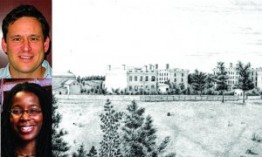
Event Information
Date & Time
January 13, 2017 - 4:00pm to 6:00pm
Location
Hatcher Graduate Library, Gallery (Room 100)
Location Information
Series
Symposium 1817: Nation Building in the Old Northwest and the Making of the University of Michigan
Event Type
Symposium
“The Political Economy of Plunder," part of Symposium 1817: Nation Building in the Old Northwest and the Making of the University of Michigan, features Michael Witgen and Tiya Miles, who discuss the development of the Michigan territory in the years that U-M initially took shape, 1817-1837. Professor Witgen emphasizes the dispossession of Anishinaabe peoples in a series of treaties that set the stage for U-M’s beginning. Professor Miles considers the history of the slave-holding elite in Detroit as well as the activities of the underground railroad there in the antebellum years.
On January 12, Colson Whitehead reads from his 2016 National Book Award winning novel, The Underground Railroad, set in the period of the university’s founding. The novel links American slavery to the dispossession of Native peoples and further illuminates the concerns that Professors Witgen and Miles have probed.
This LSA Bicentennial Theme Semester event is presented with support from the College of Literature, Science, and the Arts and the University of Michigan Bicentennial Office. Additional support provided by the Department of History and the Eisenberg Institute for Historical Studies.
The Political Economy of Plunder

Event Information
Date & Time
January 13, 2017 - 4:00pm to 6:00pm
Location
Hatcher Graduate Library, Gallery (Room 100)
Location Information
Series
Symposium 1817: Nation Building in the Old Northwest and the Making of the University of Michigan
Event Type
Symposium
“The Political Economy of Plunder," part of Symposium 1817: Nation Building in the Old Northwest and the Making of the University of Michigan, features Michael Witgen and Tiya Miles, who discuss the development of the Michigan territory in the years that U-M initially took shape, 1817-1837. Professor Witgen emphasizes the dispossession of Anishinaabe peoples in a series of treaties that set the stage for U-M’s beginning. Professor Miles considers the history of the slave-holding elite in Detroit as well as the activities of the underground railroad there in the antebellum years.
On January 12, Colson Whitehead reads from his 2016 National Book Award winning novel, The Underground Railroad, set in the period of the university’s founding. The novel links American slavery to the dispossession of Native peoples and further illuminates the concerns that Professors Witgen and Miles have probed.
This LSA Bicentennial Theme Semester event is presented with support from the College of Literature, Science, and the Arts and the University of Michigan Bicentennial Office. Additional support provided by the Department of History and the Eisenberg Institute for Historical Studies.
EC - Intellectual History of Black Women
01/09/2017 11:01 AM
I’m happy to give extra credit to students who attend this presentation / discussion and write a reflection about it.
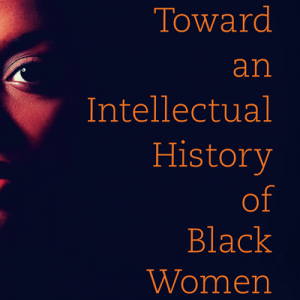

| Gender: New Works, New Questions |
Extra credit opportunity - "Fall Seven Times, Get Up Eight"
01/02/2017 10:56 AM
I wasn’t able to fit this film into our syllabus, but you’re welcome to watch it if you’re interested. It will be especially relevant after weeks 9 and 10, when we discuss transnational relationships. Our library has a copy of the dvd, but I will try to get it added to our Canvas streaming list, too. I’m happy to give extra credit to any student who watches the film and writes a reflection (as per the standard procedure for extra credit), before March 23, i.e. after we discuss transnational relationships.
Fall Seven Times, Get Up Eight: The Japanese War Brides (Trailer) from Blue Chalk on Vimeo.
Irish Times on marriage norms in China
01/02/2017 08:55 AM
Women in China: Not playing the marriage game
The second in a four-part depth series reveals how women are pressurised to marry early
Wed, Dec 28, 2016, 01:00
Clifford Coonan in Beijing

At matchmaking markets in China parents post profiles of their daughters in the hope of finding a suitable suitor. Photograph: Getty Images
A 29-year-old friend from Heilongjiang province starts thinking up the story she is going to tell her parents about her new, imaginary, boyfriend, in the weeks before she travels north to her family for Chinese New Year.
The clash between a rapidly-urbanising society and traditional Confucian values of filial piety and acceptance of a daughter’s traditional meek role means millennial Chinese women have major emotional pressures to handle when they make the annual pilgrimage home during China’s most important holiday.
The toughest challenge is coping with being a sheng nü or “leftover woman”, which refers to any woman over the age of 27 who is unmarried and applies to the swelling ranks of women who want education and economic independence and who do not wish to follow the traditional paths set out by their parents.
Full article here>>
The second in a four-part depth series reveals how women are pressurised to marry early
Wed, Dec 28, 2016, 01:00
Clifford Coonan in Beijing

At matchmaking markets in China parents post profiles of their daughters in the hope of finding a suitable suitor. Photograph: Getty Images
A 29-year-old friend from Heilongjiang province starts thinking up the story she is going to tell her parents about her new, imaginary, boyfriend, in the weeks before she travels north to her family for Chinese New Year.
The clash between a rapidly-urbanising society and traditional Confucian values of filial piety and acceptance of a daughter’s traditional meek role means millennial Chinese women have major emotional pressures to handle when they make the annual pilgrimage home during China’s most important holiday.
The toughest challenge is coping with being a sheng nü or “leftover woman”, which refers to any woman over the age of 27 who is unmarried and applies to the swelling ranks of women who want education and economic independence and who do not wish to follow the traditional paths set out by their parents.
Full article here>>
More from Ravi Patel
01/01/2017 02:34 PM
While looking for information about Meet the Patels, the first film we’ll watch, I came across this short interview with one of the directors, Ravi Patel. In it, he says some interesting things in response to Aziz Ansari’s public statements about being a South Asian actor in the US.
Master of None’s Ravi Patel on Doing the Infamous Indian Accent and the Second Coming of Aziz Ansari
By Mallika Rao
Ravi Patel’s first role as a call-center operator in Michael Bay’s Transformers had him working the notorious “Apu” accent. Eight years on and the actor is in the midst of his own transformation, from token Indian to charming disruptor. Patel’s splashy 2015 documentary (and soon, feature film) Meet the Patels features his actual family weighing in as he tries to find a wife the vintage, arranged way. He parlayed that naturalism into TV ubiquity of a kind typically elusive to brown men in Hollywood: as an unaccented sous chef on the ABC comedy Grandfathered, and a struggling, lovable — and very real — Indian-American actor on Aziz Ansari’s bingeable new comedy, Master of None.
Vulture recently talked to Patel about working with Ansari, marriage, and his conflicted relationship with the infamous accent.
Full article here>>
Master of None’s Ravi Patel on Doing the Infamous Indian Accent and the Second Coming of Aziz Ansari
By Mallika Rao
Ravi Patel’s first role as a call-center operator in Michael Bay’s Transformers had him working the notorious “Apu” accent. Eight years on and the actor is in the midst of his own transformation, from token Indian to charming disruptor. Patel’s splashy 2015 documentary (and soon, feature film) Meet the Patels features his actual family weighing in as he tries to find a wife the vintage, arranged way. He parlayed that naturalism into TV ubiquity of a kind typically elusive to brown men in Hollywood: as an unaccented sous chef on the ABC comedy Grandfathered, and a struggling, lovable — and very real — Indian-American actor on Aziz Ansari’s bingeable new comedy, Master of None.
Vulture recently talked to Patel about working with Ansari, marriage, and his conflicted relationship with the infamous accent.
Full article here>>
This is Your Brain on Screens
01/01/2017 05:37 AM

Despite my own use of technology in and out of the classroom, I have a strong restriction against students using laptops or tablets or phones in class. At the beginning of the semester, I want to explain my reasoning behind this policy.
I believe that it is incredibly hard not to multi-task when you are sitting in front of a screen, be it a TV or computer screen. And, although multi-tasking might feel good to some people at some moments, every piece of evidence I have ever read or experienced convinces me of the opposite. Multi-tasking hinders listening, thinking, engagement, and learning, all of which we are trying to maximize in the classroom.
For more on this topic, check out this article about the benefits of unplugging from technology and Nicholas Carr’s work on “how the Internet is making us stupid.” To be clear, I think technology is a wonderful thing and I have no problem with video games or blogs or cat videos, but only in the right context. I do not believe that having access to the internet’s firehose of information is good while you’re in a class session trying to think, listen, and share your ideas.
If you have a reason that you need to use a laptop or other device in class, please come and talk with me.
I also realize I might need to explain the title of this post -- do I? Does it make any sense to you? Like everyone in my generation, I grew up seeing this commercial on TV. I feel like “This is your brain on drugs” might be phrase that people in your generation would recognize, too, but maybe not? Here’s what I’m talking about --
This Site's Images
01/01/2017 05:09 AM

The above was taken by Jacqueline Cieslak, a doctoral student in Anthropology at the University of Virginia. She explains: This image is of women in a government colony in Delhi on Karva Chauth, a Hindu holiday celebrated primarily in North India in which women fast for the health of their husbands. This is a special fast because it includes everything — food, water, chai. The fast is broken at a certain time by the husband, who must feed his wife from his own hand. Women plan for days ahead what they will wear on Karva Chauth, and they talk about it with great anticipation — particularly women who profess love for their husbands and women who say their marriage is doing well. During the fast, women in the neighborhood come together for puja (rituals) and prayer, and they pass around feminine items, like cosmetics, jewelry, henna, and the traditional pot used in the ritual (called a karva). This photo focuses on the karva, which is a symbol of the holiday, and in the background, you can see all the women gathered to share items, apply cosmetics and henna, and do puja several hours before breaking the fast with their husbands. Food and sex are very powerfully equated in India — almost all the idioms and metaphors having to do with one reference the other. So to deny oneself food in order to be fed by someone else is a deeply meaningful and intimate act. I really like this photo because it also captures the intimacy shared by women on a holiday that, at face value, seems to be about the relationship between husband and wife.

The image above comes from Dannah Dennis, a doctoral student in Anthropology at UVA, who completed fieldwork in Kathmandu. This picture is of friends at a school where she is working, and she explains: It's not uncommon at all to see clusters of girls and boys holding hands, linking arms, and hugging like this, but never in a mixed-gender group. In polite society, men and women aren't supposed to touch each other in any way that could possibly be avoided, and that training starts young. On the right side, you can see female friends in a similar pose.
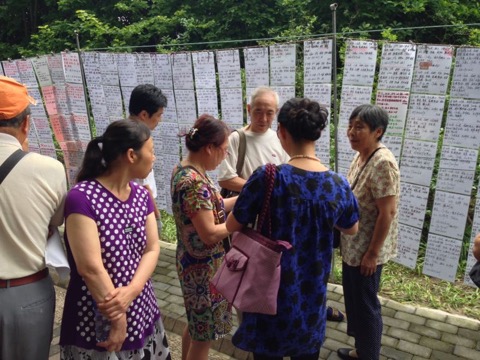
The second image was taken by Non Arkaraprasertkul and Xinyan Peng. Xinyan, a doctoral student in Anthropology at UVA, explains the picture: This is the big and famous marriage market in a public park in Shanghai, where parents post descriptions of up their sons and daughters’ profiles for matchmaking. Basically, many parents go to the “market” on Saturday, put up their sons’ and daughters’ profiles, and talk with other parents, looking for good match for their own children.

